MercoPress. South Atlantic News Agency
Economy
-
Monday, November 15th 2021 - 08:50 UTC
Bolivian protests to continue until Law 1386 is repealed, protesters warn
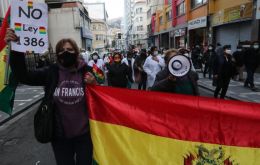
Bolivian protesters have warned their ongoing indefinite strike declared by the Pro Santa Cruz Committee will not be lifted until the Plurinational Legislative Assembly (Congress) repeals Law 1386 on the Strategy to Fight the Legitimization of Illicit Profits.
-
Saturday, November 13th 2021 - 09:30 UTC
Cruise season starts in Buenos Aires with arrival of first ship

Buenos Aires' cruise season has kicked off with the arrival at the Argentine capital's river port of the US-flagged World Navigator carrying some 100 passengers from Europe, the United States and Canada.
-
Friday, November 12th 2021 - 09:54 UTC
The Government has heard the voice of the people, Argentine President says
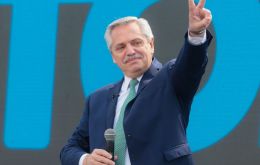
Argentine President Alberto Fernández Thursday assured his Government had listened to the demands of the people after the Mandatory, Simultaneous and Open Primary (PASO) elections in September and taken the necessary steps to deserve the popular support Sunday.
-
Friday, November 12th 2021 - 09:08 UTC
Xi, Biden to hold virtual Summit next Monday

The Presidents of China, Xi Jinping, and of the United States, Joseph Biden, are to hold a virtual Summit this coming Monday to discuss bilateral issues, particularly the case of Taiwan, an independent country still considered a rogue province by the Asian giant.
-
Thursday, November 11th 2021 - 09:50 UTC
UK/Uruguay agree to establish a Trade Dialogue to develop economic relations
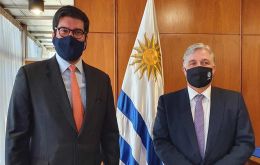
During a three-day official visit to Uruguay UK's Minister for International Trade, Ranil Jayawardena, M.P., met with Uruguay’s Foreign Minister, Ambassador Francisco Bustillo, and confirmed both countries’ desire to continue strengthening their bilateral trading relationship.
-
Thursday, November 11th 2021 - 09:48 UTC
Castillo wants to sell Peru's presidential airplane
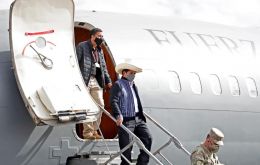
Peru's President Pedro Castillo Terrones Wednesday announced he would put the presidential aeroplane up for sale in a move towards financial austerity.
-
Thursday, November 11th 2021 - 09:30 UTC
Unofficial US dollar crosses 200-peso threshold in Argentina

As next Sunday's mid-term elections loom over and the government of President Alberto Fernández seems headed for inevitable defeat, desperate Argentinians turned to the currency black market to convert their volatile pesos into US dollars, thus piercing the psychological AR $ 200 threshold for the first time.
-
Thursday, November 11th 2021 - 09:07 UTC
Venezuelan workers demand better salaries
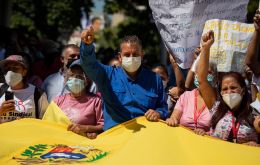
Venezuelan workers Wednesday took to the streets Wednesday to demand a change in the country's policies together with better pay for them and their families.
-
Wednesday, November 10th 2021 - 09:38 UTC
Bill allowing Chileans to withdraw yet another 10% of pension savings does not make it through the Senate

A bill authorizing Chileans to make a fourth withdrawal of pension funds to cope with economic shortcomings due to restrictive measures taken during the fight against COVID-19 has failed to make it through the Senate.
-
Wednesday, November 10th 2021 - 09:34 UTC
Brazil's STF poised to terminating Bolsonaro's secret funds
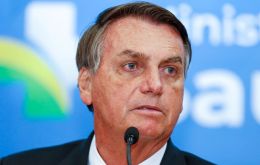
Brazil's Supreme Federal Court (STF) looked poised Tuesday to bring the existence of confidential funds to an end. According to this mechanism dating back to 2020, a parliamentarian acts each year as “budget rapporteur,” suggesting federal agencies where and how to spend that money.
